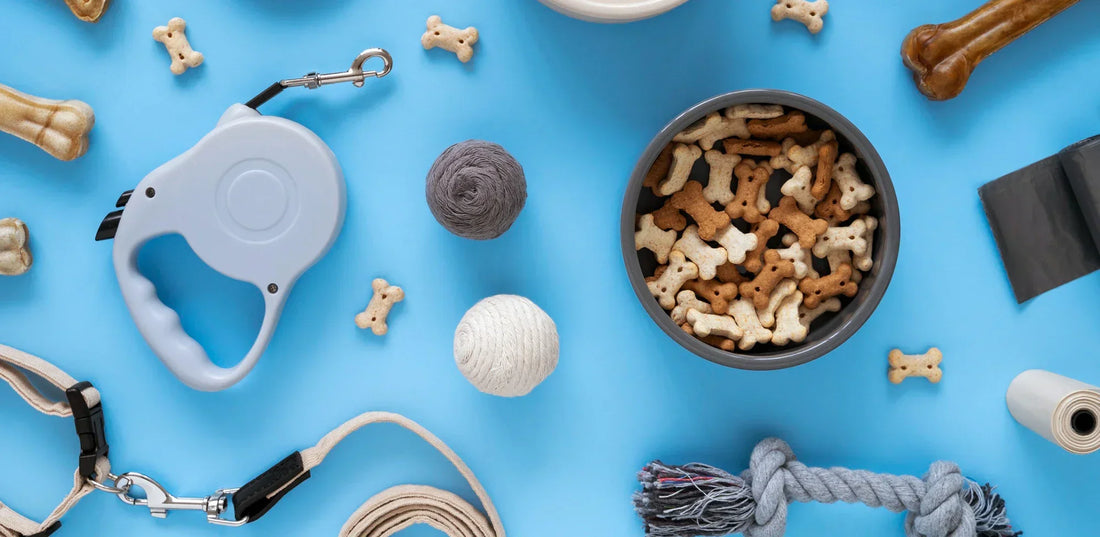
Are You Feeding Your Pet Wrong? The Shocking Truth About Pet Nutrition!
Share
As pet owners, we want the best for our furry friends. We buy them comfy beds, fun toys, and shower them with love. But when it comes to their diet, many of us unknowingly make mistakes that can lead to long-term health issues. Could you be feeding your pet the wrong way? Let’s uncover the shocking truth about pet nutrition and how you can ensure your pet lives a long, healthy life!
1. The Hidden Dangers in Commercial Pet Food
Most pet owners rely on store-bought pet food, assuming it's perfectly balanced and nutritious. But did you know that many commercial pet foods contain harmful ingredients?
-
Fillers and By-products – Low-quality pet foods often contain fillers like corn, wheat, and soy, which offer little to no nutritional value. Some even include meat by-products, which are the leftover scraps from processing plants, not quality meat.
-
Artificial Preservatives and Colors – Chemicals like BHA, BHT, and ethoxyquin are used to extend shelf life but have been linked to health issues in pets, including allergies and cancer.
-
Excessive Carbohydrates – Many dry kibbles contain a high percentage of carbs, which can lead to obesity and diabetes in pets, especially cats, who are natural carnivores.
What to Look For in Pet Food:
✅ High-quality proteins like real chicken, fish, beef, or turkey
✅ Whole, natural ingredients with no artificial additives
✅ Limited carbohydrates, especially for cats
✅ Clearly labeled ingredients without vague terms like “meat meal”
2. The Human Food Mistake: What You Should NEVER Share with Your Pet
Many pet owners love sharing food with their pets, but some human foods can be toxic to them.
Foods That Are Dangerous for Pets:
-
Chocolate – Contains theobromine, which is toxic to dogs and cats.
-
Onions & Garlic – Can cause anemia and serious digestive issues.
-
Grapes & Raisins – Even a small amount can lead to kidney failure in dogs.
-
Xylitol (Artificial Sweetener) – Found in sugar-free gum and some peanut butters, xylitol can be deadly for pets.
-
Safe Human Foods for Pets (in Moderation):
-
Cooked lean meats like chicken or turkey (no seasoning)
-
Plain pumpkin (good for digestion)
-
Carrots & Apples (great low-calorie treats)
-
Plain yogurt (for healthy gut bacteria)
3. The Raw vs. Cooked Debate: Which Diet is Best?
Many pet owners are turning to raw food diets, believing they are more natural and nutritious. But is raw feeding really the best option?
Benefits of a Raw Diet:
-
Higher in natural nutrients and enzymes
-
Helps maintain a shiny coat and healthy skin
-
More closely resembles a pet’s natural diet
Potential Risks:
-
Raw meat can carry bacteria like salmonella
-
Some pets may not digest raw bones properly
-
It requires careful planning to ensure a balanced diet
Solution: If you want to try raw feeding, consult a vet to ensure your pet gets all the necessary nutrients. Some pet owners opt for lightly cooked homemade meals as a safer alternative.
4. The Water Factor: Are You Keeping Your Pet Hydrated?
Many pet owners focus on food but forget about water. Dehydration can lead to kidney issues, urinary tract infections, and other health problems.
How Much Water Does Your Pet Need?
-
Dogs: About 1 ounce of water per pound of body weight per day
-
Cats: They naturally drink less, but wet food helps with hydration
Tip: If your pet isn’t drinking enough, try using a pet fountain—many animals prefer running water!
5. The Truth About Portion Sizes and Overfeeding
Obesity is a growing problem among pets. Overfeeding can lead to diabetes, heart disease, and joint problems.
How to Control Portions:
✔️ Follow feeding guidelines on pet food packaging, but adjust based on activity level
✔️ Use a measuring cup instead of guessing portions
✔️ Avoid too many treats—stick to the 10% rule (treats should be no more than 10% of daily calorie intake)
Final Thoughts: Are You Ready to Improve Your Pet’s Diet?
If you’ve been making any of these mistakes, don’t worry—you’re not alone! The key is to educate yourself and make gradual changes. Whether it’s switching to high-quality food, avoiding harmful human foods, or adjusting portion sizes, small changes can lead to a big difference in your pet’s health and happiness.
Take action today! Check the ingredients in your pet’s food, ensure they’re drinking enough water, and consult a vet for personalized dietary advice. Your furry friend will thank you with a longer, healthier life!